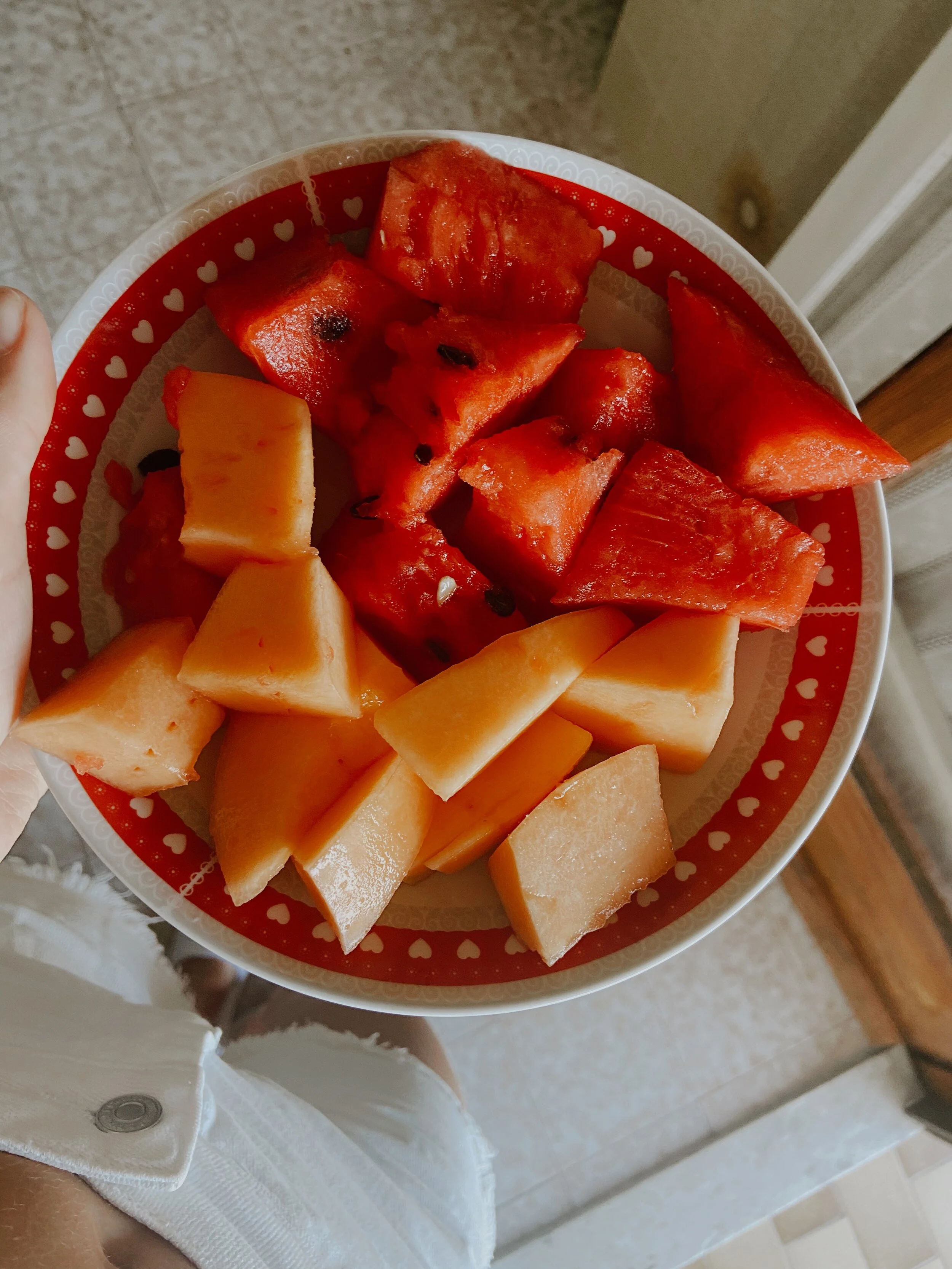In Focus: Carbohydrates
What are carbohydrates?
Carbohydrates are one of the three essential macro nutrients that form the human diet. The three macronutrients are, Carbohydrates, Protein and Fats. Foods which contain the majority of energy from carbohydrates are the most important sources of food energy in the world, some of the most prominent are, maize, rice, pasta, oats, wheat. Carbohydrate containing foods normally make up roughly 40-80% of energy intake of our diet.
Now for some science...what are carbohydrates made of??
All carbohydrates are made of sugars, it’s never normally just one type and can either be, 'simple' = made up of one sugar, or 'complex'= made up of multiple. Some examples of these sugars are, sucrose, galactose, glucose, fructose, and lactose. You may see a pattern here..... the ending -ose means 'sugar'.
When I say sugar, you’re most likely picturing white sugar.... this is actually known as sucrose. Which is made up of roughly half glucose and half fructose. (It can get a little confusing as the words all sound so similar...)
All carbohydrates are eventually broken down into glucose in our body. Our bodies favourite form of energy! Especially our brains!! Glucose is a GOOD thing and essential for our bodies to work optimally. Some carbohydrates are already in this simplest form of glucose, we call them 'simple' or 'free' sugars.
Carbohydrate foods in this category are things such as, honey, sugar, maple syrup, fructose syrups, agave, coconut sugar and fruit juice.
Foods which contain these ingredient are for example cakes, biscuits, ice creams, some breads, pre-packaged food items like, sauces, ready meals, cereals, cereal bars; we would say these include 'free' sugars.
The other group of carbohydrates are known as starchy/complex carbohydrates, they are also made up of varying types of sugars. Such as, cellulose, starch and glycogen.
Some foods in this category are, vegetables, whole grains, fruits, pulses.
Rather than just speaking about the sugars, we can also identify carbohydrates by their chemical and physiological structures.
The sugars that are present in the ‘simple sugar’ food groups are monosaccharides (saccharide is another word for sugar) this translates to ‘one-sugar’.
The sugars in the complex carbohydrates are disaccharides or polysaccharides, which means either two or more different sugars are connected.
This can help us understand how and why these different sugars, and carbohydrate food sources are digested differently in the body.
As there are longer chains of sugars in the 'Complex' carbohydrates, the body takes longer to break them down into the desired energy source, glucose! This is why it is often referred to as slow burn energy. For example, oats are a great option for breakfast, as they will continue to supply glucose to the brain and body for a longer period than possibly a breakfast higher in simple sugars.
On the other hand, 'simple' sugars made up of the monosaccharides, as mentioned earlier, will be broken down quickly by the body, so it receives the energy faster. This is why sometimes we can feel hungry quite quickly after eating a food higher in simple sugars.
There is a place for both of these types of carbohydrates in the body, both can be useful and satisfying at different times. As mentioned maybe a complex carbohydrate, such as, oats are better for breakfast but, a simple sugar like jam on toast, would be great before a run, our body can access the energy quickly.
Also these 'simple' sugar carbohydrates can often be highly palatable (meaning very yummy), which can make the perfect food for celebrations, happiness and a little pick me up. Also, it's important to say the foods made with simple sugars may include fat and protein so this will also slow down the digestive rate.
How much Carbohydrates should we be eating?
It is different for everyone, as it depends on your size and activity level. But a good rough measure is a fist size portion of starchy (wholegrain if possible), complex carbohydrate at every meal, alter for activity levels where necessary. 'Free' sugars should be limited to 30g per day.
This is all based on the current healthy eating guidelines set in the UK.
Why are they essential?
As mentioned carbohydrates make up the majority of food energy sources for humans, but why are they so essential to health?
Carbohydrates are broken down to glucose in the body which is the body and brain's primary energy source. The body can break down 'fatty acids' to glucose if carbohydrates are not present, however this is not optimal.
Also, lots of starchy/complex carbohydrates are rich sources of fibre which is important for digestive health and the gut micro-biome.
They are delicious, and often hold a special place in our heart - eating is so much more than just nutrition; it is memories, family connection, love and comfort. Often, the food that holds these memories and comforts for so many are, carbohydrate rich foods.
They are filling and cheap - This can mean people can feed themselves and families well from carbohydrates for little money which is incredibly vital for public health.
Why the bad rep?
I'm sure at some point you've come across a claim that 'carbs' (carbohydrates) are the enemy!! But that categorically is false. Cutting them out is unsustainable, incredibly sad, as so many beautiful foods and meals contain carbohydrates, but most importantly, it can also be very dangerous.
You should never cut out a whole food group, unless you have been diagnosed with a disease by a doctor and diet intervention is required; in which case you will be monitored by a Registered Dietitian throughout.
Some myth busting
Carbohydrate myth no.1
'Carbohydrates make you fat'
It is often claimed by people encouraging a low carbohydrate approach that they will lead to weight gain, as they are stored as fat in the body.
This is not true, not one particular macro nutrient, or food can make you gain weight. All macronutrients contain calories and and an excess of calories in any form can lead to weight gain. Carbohydrates do not have a particular ability to cause weight increase.
Often, when cutting carbohydrates out of the diet, people will find they are more hungry and find it hard to maintain this diet. When inevitably, they start eating carbohydrates again they eat an excess of them, this 'yo-yo' approach of restricting and then overconsumption can cause weight gain over time.
Most people who experience weight loss when they first go on a low carbohydrate diet is only due to water weight loss. This is because carbohydrates contain the most water of any macro nutrient, so cutting them out means less weight of food going in.
Carbohydrate myth no.2
'Carbs are only things like, bread, pasta, rice, white potatoes.'
These foods mentioned above do contain carbohydrates, HOWEVER, so do foods such as, fruits, vegetables, wholegrain, lentils, chickpeas, pulses, dried fruits. These food are all rich sources of nutrients and minerals and we know they have a direct impact on positive health outcomes. This highlights even further how damaging it can be to cut them out totally and how hard it will be to create meals without these broad range of foods.
Dangers of cutting out carbohydrates
Unsustainable - as mentioned above, not eating carbohydrates is not a happy state for the human body, and eventually a craving for them will be so strong that it's no longer in the individuals power to say no. This can lead to an increase in overall calorie consumption and feeling disappointment in ourselves when we 'fall off the wagon'.
Upsetting the gut micro-biome - Cutting out carbohydrates can lead to poor gut health and constipation.
Nutrient Deficiencies - cutting out any food group can lead to dangerous deficiencies.
Brain fog - concentration can be much harder when the brain is not getting easily accessible glucose regularly throughout the day.
Low energy - often overall energy intake can be reduced when a whole food group is cut out so low energy is likely. Also a reduction in glucose levels can cause tiredness.
Preoccupation with food - this is always a risk when a whole food group is cut out, our body has strong mechanisms to raise ghrelin levels (the hormone which makes us feel hungry) and suppresses leptin (which is the hormone that makes us feel full), over time this signalling over rides and we can be left constantly thinking of food; as the body wants the correct fuel to make it feel good.
Disclaimer - the above will not apply directly if you have been diagnosed with Type 1 or Type 2 Diabetes.


